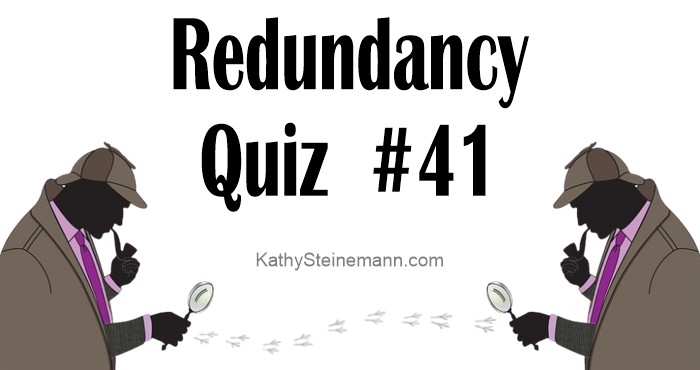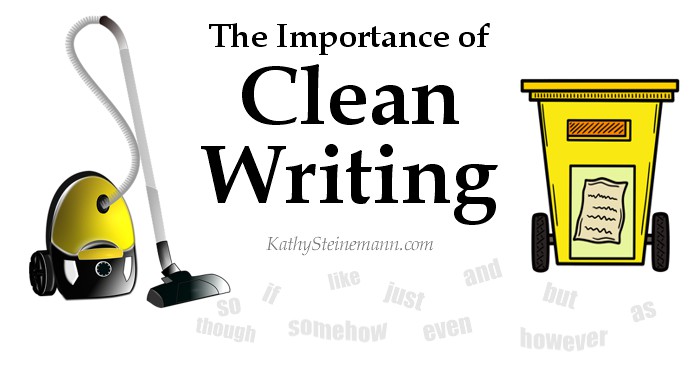
A Quick Announcement
A few days ago, I received the following e-mail:


These nuisances are superfluous words or phrases also known as pleonasms. Rather than augment writing, they slow action scenes and increase word count — without adding constructive details.
Remember as you attempt this quiz, that one of the meanings of redundant is “unnecessary.”
This quiz, the forty-first in its series, offers ten sentences containing redundancies, and ten suggested solutions.
They are edited examples from books, news media, television shows, and overheard conversations.

While listening to radio music during a recent road trip, my attention wandered, and I realized I was on the verge of becoming sleepy enough to pull over. The weather was terrible — no day to step out of the car without an umbrella.
At least if I wanted to stay dry.

If your writing trips people, even for a microsecond, it can result in confusion and lost readers. This guest post by Nmesoma Okechukwu describes the significance of clean writing.
—
I’ve always compared writing to painting. It’s not about having an elegant story to tell or finding that beautiful picture to paint: you have to find the right colors, or with text, the right words to tell it. Words should flow like a river, drawing your reader deeper and deeper into the literary work you’ve created.